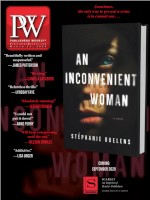In Deep Delta Justice (Little, Brown, May.), journalist Van Meter revisits an unsung victory in the battle for civil rights.
What made you decide to write this book?
I was taking a criminal procedure class at Columbia Law School and when we got to the right to jury trials, the professor told a version of the story of Duncan v. Louisiana, the case the book is based on. I went online to see who wrote the book about it, but it wasn’t on Amazon, or in the Columbia library—there was no book. That day I knew what I was going to do. That was almost exactly five years ago.
What was the greatest challenge in writing it?
The book is a little bit of a bait and switch: you come for the Supreme Court case and end up staying for the characters and the broadening context. And that was the biggest challenge—how to start out. It’s this junky little misdemeanor case—you know it’s headed to the Supreme Court, and you think that’s the whole story, but it’s not. The most interesting parts of the book, to me, have everything to do with the people and how they fought their battles.
You interviewed people who were on both sides of the racial divide in the 1960s. Did their views of the past diverge?
I think so, yes and no. The black community, quite rightly, remembers the pain of the disrespect and disenfranchisement and how hard they had to fight to win the rights that were guaranteed by the Constitution. And the white community does not have firsthand experience of that, for the most part, but they understand what was going on. There was agreement that it wasn’t good.
You’re sympathetic to most of the players involved, with the exception of segregationist leader Leander Perez. Have you received any criticisms that you’re too kind to the white community in southeastern Louisiana?
No, although I imagine I will. And I don’t think they’ll be exactly wrong. It’s something I’ve thought about. But I also know these people and I think their greatest sin—as is true for so many of us who are in power, culturally—was not sticking up for what they probably, on some level, knew was right. In the realm of sins against society, I think that’s one that, if we don’t forgive people for it, there won’t be a whole lot of people left. When it comes right down to it, the miracle of Plaquemines Parish is not how ugly it was during integration. The newspapers, particularly the black press, fully expected it to erupt into violence, but it didn’t, and it ended up being this real success story, particularly after the time frame of the book. I think there’s something hopeful in that—it takes more than one hateful, hardworking bigot to turn a community into a monster.



 Volume 267
Issue 12
03/23/2020
Volume 267
Issue 12
03/23/2020





